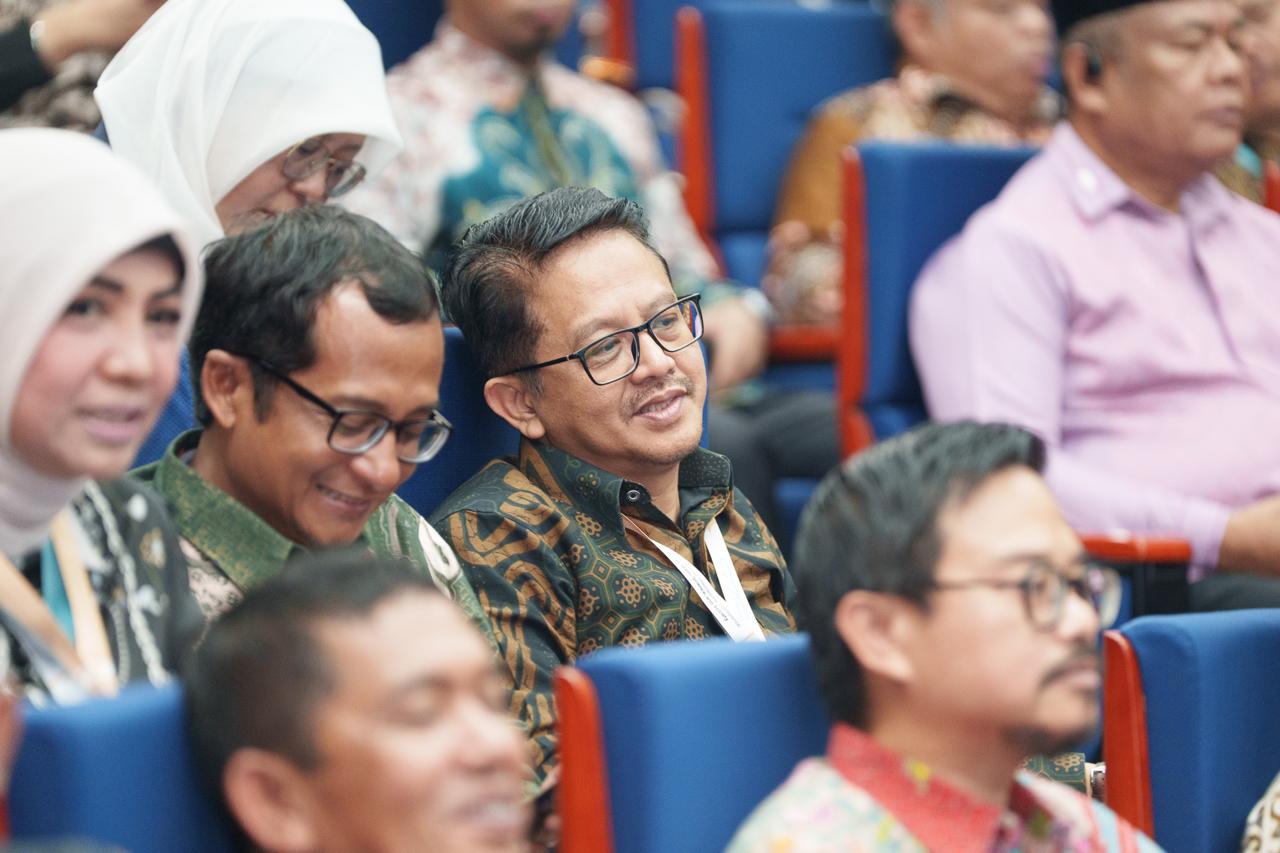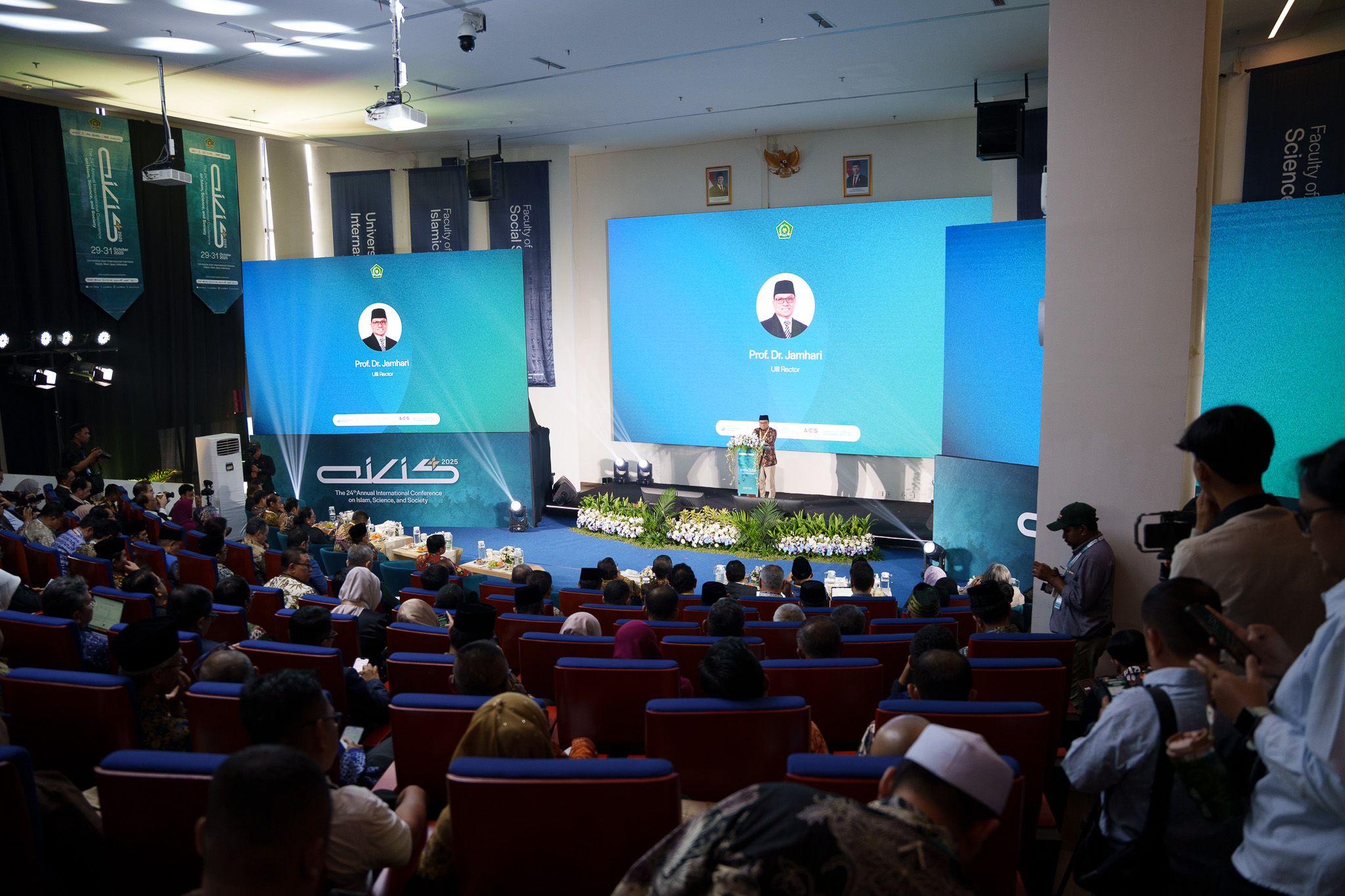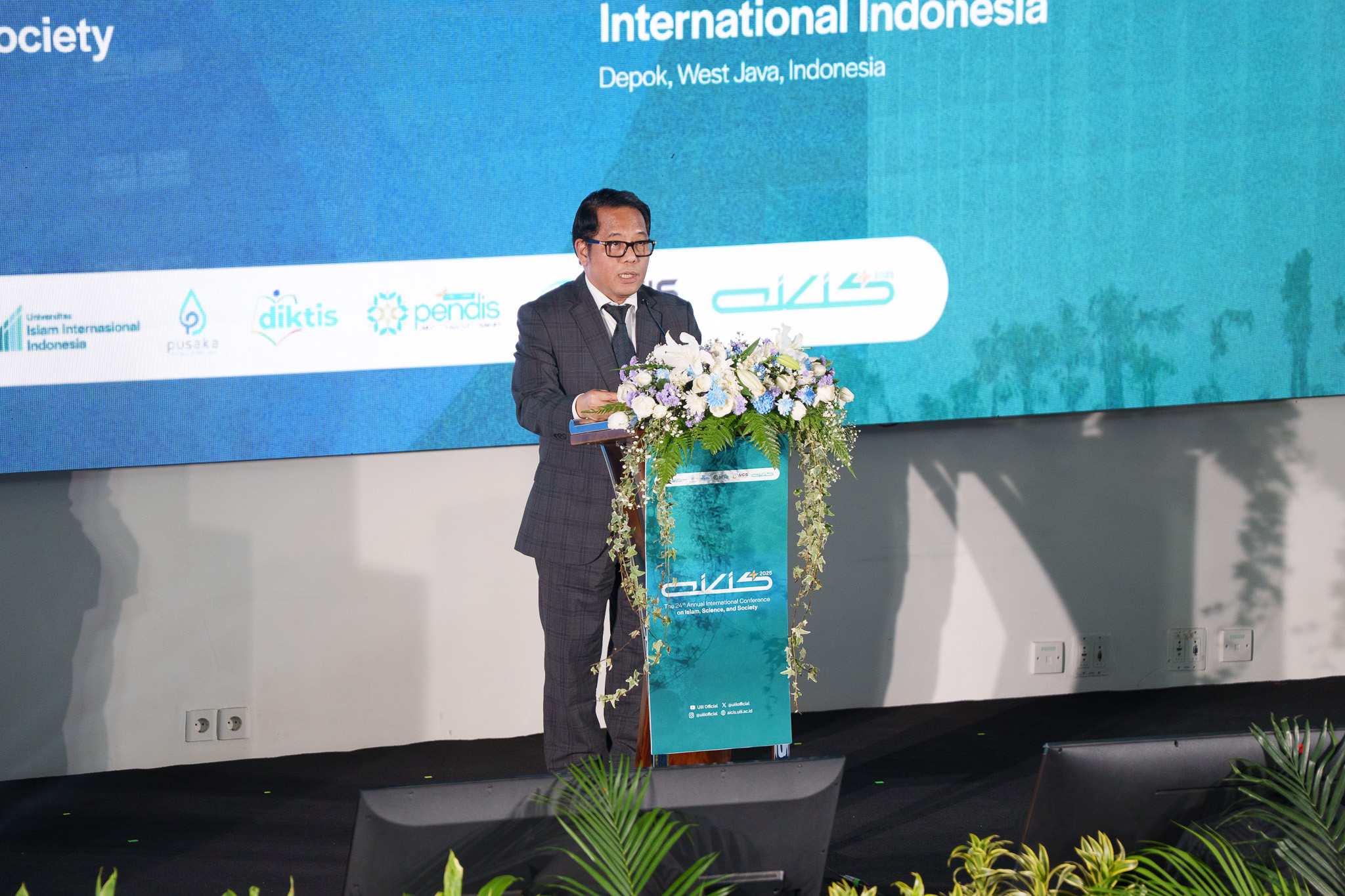October 29, 2025
Contributor: Maryam Hameed | Photo: Achmad Jatnika

The 24th Annual International Conference on Islam, Science, and Society (AICIS+) 2025 officially opened on October 29, 2025, at Universitas Islam Internasional Indonesia (UIII), gathering prominent scholars, policymakers, and researchers from around the world to discuss how faith, science, and society can work together toward a more sustainable and just future.
This year’s theme, “Islam, Ecotheology, and Technological Transformation: Multidisciplinary Innovations for an Equitable and Sustainable Future,” captures Indonesia’s growing commitment to combining spiritual wisdom with scientific and social innovation. The discussions aim to explore how Islamic perspectives can contribute to addressing global sustainability challenges through ethics, research, and policy.
The opening ceremony began with the Indonesian national anthem, followed by a soulful musical performance that brought energy and pride to the audience. Recitation of Holy Quran and prayer then created a spiritual atmosphere, reminding everyone that faith remains at the heart of intellectual pursuit.
 In his opening remarks, Professor Jamhari, Rector of UIII, shared that the university’s mission is rooted in the harmony between Islamic values and modern scientific exploration. He described AICIS+ as a living example of “knowledge in action,” where faith and reason unite to inspire meaningful innovation and positive social transformation.
In his opening remarks, Professor Jamhari, Rector of UIII, shared that the university’s mission is rooted in the harmony between Islamic values and modern scientific exploration. He described AICIS+ as a living example of “knowledge in action,” where faith and reason unite to inspire meaningful innovation and positive social transformation.
AICIS+, which has evolved from the long-standing AICIS conference, expands its focus beyond Islamic and social sciences to include science, technology, and innovation. This evolution aligns with Indonesia’s national vision of Asta Cita, which promotes excellence through cross-disciplinary collaboration that balances moral insight with scientific progress.
This year’s conference marks one of the most significant milestones in AICIS history. It brings together participants from 31 countries, with over 2,400 abstracts submitted and 230 papers selected for presentation in 68 parallel sessions. The diversity of speakers from Indonesia, United Kingdom, France, Malaysia, and Singapore reflect the conference’s truly global scope and intellectual depth.
 In his keynote address, Professor Kamaruddin Amin, Secretary-General of Indonesia’s Ministry of Religious Affairs delivered an inspiring lecture on ecotheology, emphasizing how Islamic ethics can shape scientific approaches to environmental challenges. He called for stronger collaboration between theology and science to build solutions that are both ethically grounded and environmentally sustainable.
In his keynote address, Professor Kamaruddin Amin, Secretary-General of Indonesia’s Ministry of Religious Affairs delivered an inspiring lecture on ecotheology, emphasizing how Islamic ethics can shape scientific approaches to environmental challenges. He called for stronger collaboration between theology and science to build solutions that are both ethically grounded and environmentally sustainable.
The conference also features the PTKI Research and Madrasah Science Expo, an exhibition that showcases the integration of religious learning with scientific inquiry. The expo highlights the creativity of State Islamic Higher Education institutions and Madrasahs in promoting innovation, research, and critical thinking among students.
Over the three days of AICIS+ 2025, participants will engage in discussions that connect faith, science, and society, examining how knowledge can serve humanity and the planet. The conference reflects UIII’s broader mission to nurture intellectual curiosity rooted in ethical values and to promote a future where faith and science strengthen one another in addressing global challenges.
By connecting diverse fields and perspectives, AICIS+ 2025 demonstrates that sustainable development is not only about technology but also about the balance between belief, knowledge, and collective human responsibility.
Universitas Islam Internasional Indonesia